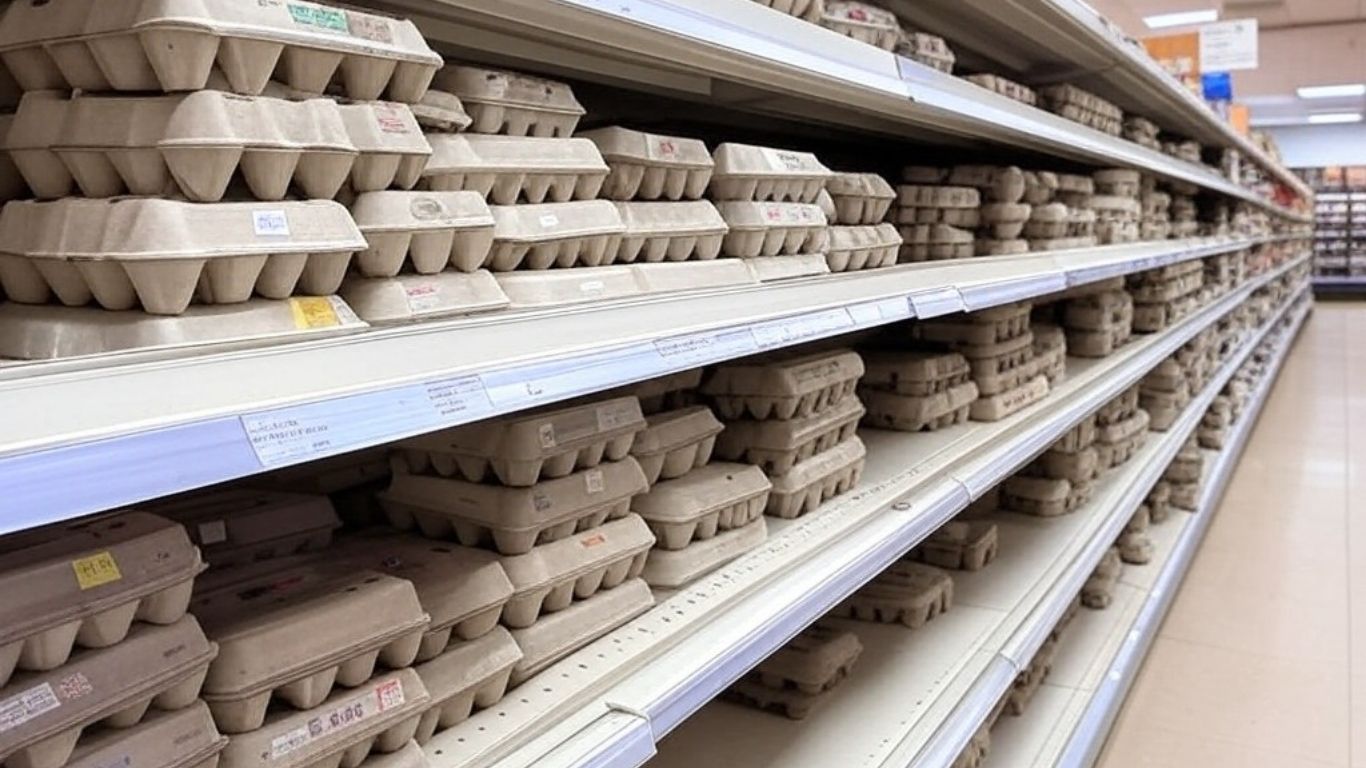Egg lovers across the D.C. area are noticing a troubling trend: fewer eggs on store shelves and rising prices. At certain grocery stores, restrictions on egg purchases are now in place, leaving shoppers frustrated and wondering what’s behind the sudden scarcity.
Egg Shortages: A Growing Concern
Some stores, such as Whole Foods in Chevy Chase, have implemented strict purchasing limits—customers can only buy up to three dozen eggs. This move aims to manage demand but has left many shoppers surprised.
“I heard about higher prices, not a shortage,” said Andrew, a local shopper. His sentiment is echoed by others who are equally puzzled by the scarcity.
Chains like Harris Teeter, Trader Joe’s, and Whole Foods are reportedly taking similar steps to curb purchases, while Giant Food remains unrestricted for now.
The Role of Bird Flu in the Egg Shortage
A significant factor contributing to the limited egg supply could be the recent outbreak of H5N1, commonly known as bird flu. This highly contagious virus is impacting poultry farms across the nation, straining the supply chain.
In California, a state of emergency has already been declared due to the virus, raising alarms about its potential effects on egg production nationwide. However, while bird flu is a plausible culprit, it’s not the only reason for the shortages.
Seasonal Demand and Supply Chain Struggles
Holiday cooking is another factor driving up egg demand. With households baking and preparing festive meals, the spike in purchases has left some stores struggling to keep up.
Carole, a shopper who uses eggs daily, noted, “I noticed that we had fewer eggs, and I’m a big egg person, so that was a big deal.” She added that she hopes the upcoming snowy weather doesn’t worsen the situation.
Rising Prices Add to Consumer Frustration
While some shoppers haven’t noticed a drastic price hike yet, others are feeling the pinch. The interplay between limited supply and high demand often leads to higher costs, making eggs less affordable for many households.
Shoppers’ Reactions to the Restrictions
For those heavily reliant on eggs, the restrictions are unwelcome news.
“I don’t like it at all,” Carole said. Others, like Andrew, expressed a more practical outlook: “After what you told me, I’m not really thinking about stocking up on them. I’ll probably buy something else.”
Yuji, another shopper, noted that three dozen eggs still seem like a reasonable allowance but acknowledged the limitations could signal a larger problem.
What Are Grocery Stores Saying?
Among the major chains, Giant Food has been the most transparent about its stance. A representative told WTOP:
“We do not have a limit on the number of eggs customers can purchase. Giant Food is aware of the recent concerns regarding H5 bird flu. We continue to closely monitor the issue and will take appropriate action, if needed. As always, the health and safety of our customers is our highest priority.”
Other stores have not responded publicly, leaving room for speculation about how widespread the shortages might become.
Should You Stock Up on Eggs?
The combination of bird flu, holiday demand, and supply chain issues has created a perfect storm, but experts caution against panic buying. Hoarding could exacerbate the problem and drive prices even higher.
Instead, consider alternatives or limit egg usage where possible. Many recipes can adapt with substitutes like flaxseed, applesauce, or commercial egg replacers.
The egg shortage is a multifaceted issue, with bird flu, holiday demand, and supply chain disruptions all playing a role. While some stores are imposing purchase limits, others remain unaffected, at least for now.
Shoppers are encouraged to remain flexible and avoid panic buying as the situation evolves. As one shopper put it: “Maybe it’s only a small shortage.” Whether that optimism holds true will depend on how quickly these challenges are resolved.















